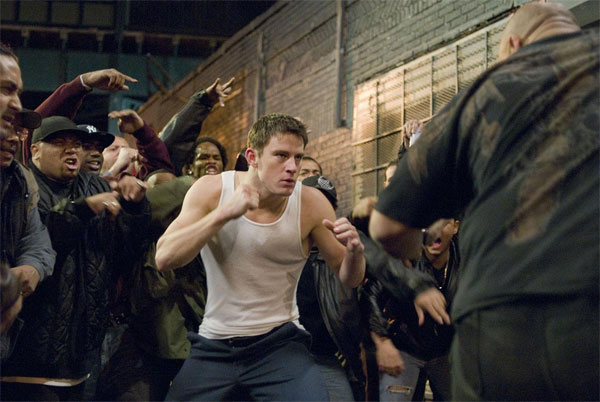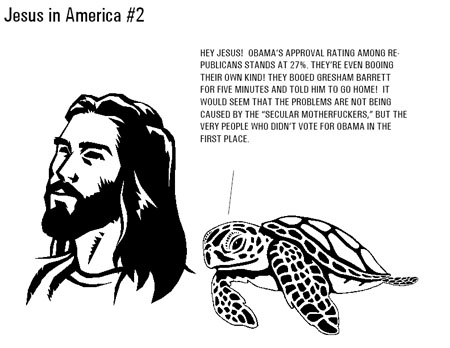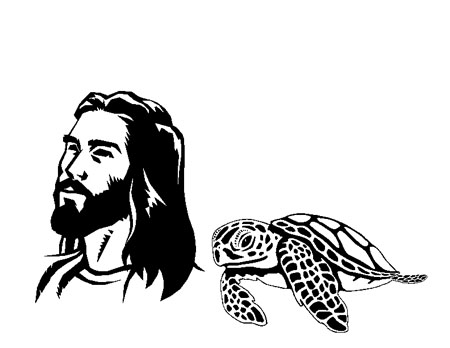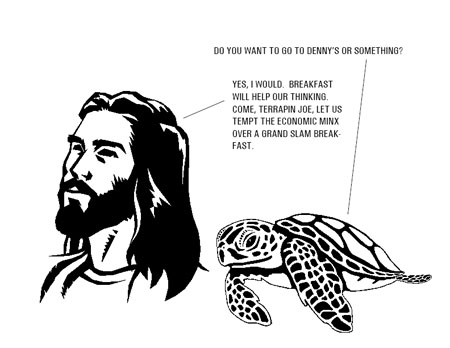“Bob Semen is a freak but New York needs freaks. At his best he was hope for the hopeless and at his worst, no more than a lesson. An adventure to be lived and learned.” — Dino Montiel, A Guide to Recognizing Your Saints
New York does indeed need its freaks. But few artists wish to broach the terrible truth that the richer and cleaner New York under Bloomberg doesn’t particularly desire them. Those seedy characters lovingly portrayed in Richard Price’s books and Abel Ferrara’s films now occupy the realm of endearing fantasy rather than representative reality. Ferrara himself notably attempted to reclaim his lost New York in 2007’s Go Go Tales (largely shot in Rome’s Cinecitta Studios and sadly unseen here in the States beyond film festivals) and the same can be said of Price’s last novel Lush Life, which, as Salon’s Richard B. Woodward and others have observed, doesn’t quite possess the authenticity of today. That’s a stunner, considering how dead-on Price’s previous achievements were. But the bums lost and were pushed rather rudely into the patchy remnants of the underground, causing our best artistic practitioners to drift into the past. Still, maybe the current economic downturn will fire up a few slackers to take any rug they want from the house.
Because of all this, it’s no surprise that the New York depicted in Dito Montiel’s second feature, Fighting, bears little resemblance to current New York. In Montiel’s universe, a hustler can get away with selling an all-too-obvious Harry Potter ripoff just blocks away from the publishing industry hubs in Midtown, African-Americans shout loudly about Billy Joel tickets, landlords post overdue notices on doors to embarrass tenants (rather than sliding them under doors), and gamblers fail to do the most rudimentary background checks on bagmen delivering half a million dollars. Montiel’s Manhattan is as true as the blown-up photo of an aerial view sitting behind one man’s desk, accessible through a door containing an equally cartoonish illustration of money. All this is something of a surprise given Montiel’s heightened attention to detail in his last film, A Guide to Recognizing Your Saints. (Yes, modern subway trains did often roll by in 1986, among many other notable gaffes. But this low-budget film felt right for the most part; especially with one powerful moment between Shia LeBeouf and Chazz Palminteri, just after LeBeouf observes a death, in which the father-son power dynamic seesaws twenty times in a New York minute.)
The inflexible authenticity booster — that Walter Benn Michaels sort of blowhard — would see all this as a bad thing. (If you missed Michaels’s small splash in the pool tended to by the gated community, Michaels stated, in all seriousness, that American Psycho — a novel, incidentally, turning eighteen this year — recalled Edith Wharton’s novels of manners and that Ellis had written a truer novel than Philip Roth, Toni Morrison, and Michael Chabon. This is the kind of wild and tenuously supported claim that apparently has you spearheading a New York Public Library discussion. You can observe the glum video results here, where the rigid Michaels comes across as some Richard Dawson-like figure of the literary world, a man very much in love with his own voice waiting for nearly everyone around him to supplicate to his ostensible intellect. I was surprised he didn’t get up from his chair, kiss Susan Straight on the lips, and entreat the audience to “play the Feud.” After spending ten minutes reading his essay aloud like some hoary and entitled hybrid of Ben Gazzara and Lee Siegel, Michaels doesn’t seem to consider that American Psycho might, in fact, be a satire or a pastiche. That the brand names and the consumerism juxtaposed against savage violence has less to do with dutifully reporting on manners and more to do with sending up entitlement. Michaels seems unable to come to complete terms with Susan Straight’s concern for location over character, which she admits to him and which defies his generalization of what authors seem concerned with, or, for that matter, David Simon’s affinity for seemingly unreal books like Schindler’s List. To give you a sense of Michaels’s subtlety, the man not only rolls his eyes, but remarks on rolling his eyes. And if he happened to be in the hood, I suspect that this hotheaded attitude would get the man beat with a baseball bat — a la Montiel. Michaels is also shockingly out-of-touch with such writers as Stewart O’Nan, Richard Russo, and William T. Vollmann, all of whom have devoted much of their fiction to working-class and/or alternative perspectives. And yet Michaels’s flummery has been lionized. Because it’s the New York thing to do. Too bad a few freaks weren’t invited to sit at the table. But, hey, this is New York.)
The more intriguing question is whether there’s any value in the inauthentic. Should we dispose of a film like Fighting that is unapologetically artificial? Well, only a humorless cloghopper like Michaels would. For what it’s worth, I found myself pleasantly surprised to have enjoyed Montiel’s movie as much as I did, precisely because it seems to concern itself with deliberate fabrication as a response to a very real predicament of a city gone horribly gentrified. The movie feels like some bizarre homage to the action movies produced by Cannon Films in the 1980s. It’s almost as if the film is suggesting that even the kind of ridiculous bravado you got with Chuck Norris in Invasion U.S.A. would better serve New York than the neutered passive masculinity too easily settled upon today. The cinematography, much like those choppy action flicks shot in the pre-500 Tungsten days, avoids volatile high-contrast situations. It seems photographed directly for VHS. (The movie does end up employing a few helicopter shots for the climactic showdown.) But that’s part of the fun. Because Montiel’s metropolis is rendered as if some 1985 incarnation of New York merged with one prominently featuring billboards of the Legally Blonde musical. And the aesthetic resemblance here is so striking that I found myself extremely startled by the first appearance of a cell phone.
The fights in this movie, rather remarkably, don’t involve blood. These bouts are of the crunchy, bone-breaking, and drinking fountain-collision variety. The safe, crowd-pleasing type you’d expect from a Cannon movie. You could easily replace Michael Rivera with Billy Drago. My Cannon parallel theory may hold up when we consider that, just after every fight Channing Tatum is involved in, one of the gang members points his finger at the supine defeated opponent and laughs. And I haven’t even mentioned the cheesy subplot with Brian White’s Evan Haley. The rich New Yorker/poor small town implant vendetta between Evan and Channing Tatum’s Shawn MacArthur goes all the way back to high school.
Channing Tatum, incidentally, makes an iffy pugilist, both in look and in execution, but he does serve as a weird amalgam of Patrick Swayze’s Dalton, a young Patrick Dempsey, and Mark Wahlberg talking to animals. His character doesn’t smoke and he doesn’t quit have the guts to say, “I’m telling you straight It’s my way or the highway.” He desperately pursues Zulay Henao and insists on clarifying that a forced 20-minute breakfast in which he claims not to be hungry is a date. (I found myself inexplicably recalling the rather ridiculous way Richard Gere shovels eggs into his mouth in An Officer and a Gentleman during this awkward meet-cute moment. Perhaps the fights in this movie are meant to be as pleasantly incongruous as the smackdown between Gere and Louis Gossett, Jr. that comes out of nowhere near film’s end. My moviegoing companion seemed convinced that Montiel was channeling They Live‘s Nada. Now, in hindsight, I am skeptical of both claims. But this does demonstrate the free association risks that come with a particular aesthetic.) Montiel has better success with Shawn MacArthur when Zulay Henao’s daughter’s abuelita tells him to get the hell out of their apartment and refuses to understand his belabored gratitude in Spanish. Here is a MacArthur who doesn’t quite have the guts to say, “I shall return.” But he’s content to fight anyone he needs to for tens of thousands of dollars.
But the reason this movie worked for me as a guilty pleasure involves how something wholly inauthentic may very well have emerged from Montiel’s reality. In Montiel’s case, it starts with Bob Semen, cited in the quote that began this essay and one of the many gritty hues brightening the streets in Montiel’s memoir. Bob’s described in the book as running an “unbelievable illegitimate, straight-out false, television movie and modeling business on 52nd Street and Broadway, right upstairs from the Kit Kat Club.” (No surprise that this locale is where much of Fighting‘s action takes place.) Bob harbors grandiose dreams to turn Montiel’s band, Gutterboy, into a media sensation. One of his plans is a ten-million-dollar movie called No More Mistakes about the guy who invented the pencil eraser. (Which sounds as dubious as a ten-million-dollar
Bob never made it into Montiel’s film adaptation, but Frank the Dog Walker did. As played by Anthony DeSando, Frank is a languorous-tongued hustler who drawls out his vowels with a vaguely gay Queens timbre and expresses his dubious plans with spastic arm thrusting. And with Fighting, there appears to have been something of a schizoid split. Both Frank the Dog Walker and DeSando made it into Montiel’s second movie, but the double helix was split. Bob transmogrified into Frank, and this was a composite further altered by DeSando. But now Montiel has found an actor to carry these idiosyncrasies further, one who can improbably carry this somewhat preposterous but strangely entertaining movie.
Bob and Frank are now Harvey Boarden. And I don’t know if this movie could have worked without Terence Howard in the role, who improves on DeSando’s performance and improbably anchors the film. Here is a man who succeeds at his hustling in spite of his seemingly space delivery. He fills up dead air with little maxims picked up from his father and a steady drawl that involves lingering on one word across multiple sentences:
A: “I got a place around the corner. You can stay there until you find another place.” (“place”)
B: “We’re in a a $100,000 Mercedes. That’s where we’re going.” (“we’re”)
C: The “You tell…” that precedes Harvey’s efforts to delegate. (“you tell”)
We soon realize that it is these emphatic repetitions that has kept Harvey going. (And indeed, Fighting continues with the Altman-like overlapping dialogue rhythms that Montiel carried out in his first film.) Harvey may have stacks of Broadway tickets on his table. He may claim to be in the “tickets and sneakers” business. But he stays alive in this New York for the rich because he finds a way to inhabit each scene and demonstrate his worth through quiet repetition. And if the movie abides by the rule that a hustler is “someone who cannot win that wins,” then surely there is room for a world that cannot be authentic but that remains authentic in its convictions.
Make no mistake: this is a cheesy fighting movie. But Montiel knows very well that New York in real or fictive form needs its freaks. For those dwelling on the freaks being squeezed out, here is a movie that, for a time, offers hope for the hopeless.



